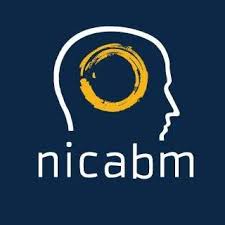How to Disrupt the Powerful Barriers That Keep Your Client Stuck. Why do clients get stuck?To fully understand what keeps our clients at a standstill, we need to look deeper at what causes the neurophysiological patterns that lead to gridlock, and how the unconscious brain creates biases that…
NICABM – How to Work With Clients Who Are Stuck
How to Disrupt the Powerful Barriers That Keep Your Client Stuck
Why do clients get stuck?
To fully understand what keeps our clients at a standstill, we need to look deeper at what causes the neurophysiological patterns that lead to gridlock, and how the unconscious brain creates biases that keep our clients immobilized.
And we need to look at new ways to approach the core fear that traps our clients inside a holding pattern of stagnation.
So we sat down with 15 of the greatest experts in our field to ask them how they work with clients who are stuck. This is what they told us. . .
How to Work With Clients Who Are Stuck
How the Unconscious Brain Creates a Holding Pattern of Fear
Bessel van der Kolk, MD Joan Borysenko, PhD Bill O’Hanlon, LMFT
How chronic trauma changes the brain (and why it keeps patients stuck)
How specific neural changes alter the way clients build connections
How one practitioner shifted himself from fearful avoidance to spontaneity
How to Train the Rigid Mind
Rick Hanson, PhD Kelly McGonigal, PhD
Joan Borysenko, PhD Bill O’Hanlon, LMFT
The “mo-betta” approach to positive neural linking
How to increase a client’s learning rate from positive experiences.
How the “dreaded experience” can make your client stuck
How to pick out the subtle ways your client is stifling self-expression
One Practical Skill to Locate Where Your Client is Stuck
Marsha Linehan, PhD Joan Borysenko, PhD
What happens when practitioners mistake impulse for choice
The analytical technique that motivates a client to change
How to focus an assessment to help clients identify their own stuckness
How to Work With Procedural Memories Keeping Your Clients Stuck
Pat Ogden, PhD Joan Borysenko, PhD
How to access specific memories in the body that cognitive therapy can’t reach
The procedural patterns of trauma vs. attachment: why they require two different approaches
How to foster integration between the explicit and implicit selves
How to Help Clients Defuse Limiting Ego Strategies
Tara Brach, PhD Ron Siegel, PsyD Kelly McGonigal, PhD
The “Spacesuit Self”: why clients put it on (and why it’s so hard to take off)
How to approach stuckness when it’s layered with shame
The “stop signal” that can disrupt anger and invite choice
How to Sell Your Client on Change
Marsha Linehan, PhD Ron Siegel, PsyD Kelly McGonigal, PhD
Joan Borysenko, PhD Bill O’Hanlon, LMFT
The one critical part of therapy where many practitioners fall short
The one emotion that you need to reframe as your client’s worst enemy
One practical skill that can break clients out of negative patterns
How Post-Traumatic Memories Can Hold the Body Hostage
Peter Levine, PhD Ron Siegel, PsyD Bill O’Hanlon, LMFT
How the body’s unconscious reaction to trauma keeps clients stuck
Why trauma survivors often get stuck in a brain-body feedback loop
The key factor that helps the body release stuck trauma and restore itself
How to Work With the Behavioral Patterns That Suppress Growth
Richard Schwartz, PhD Ron Siegel, PsyD Kelly McGonigal, Phd
The Internal Family Systems model for helping clients get unstuck
How to help clients form corrective relationships with their extreme sub-personalities
The important negotiation process that allows you to reach a client’s stuck parts
How to Use Neuroplasticity to Overwrite Negative Beliefs
Rick Hanson, PhD Bill O’Hanlon, LMFT
12 seconds that can make a difference for positive brain change
Why positive experiences alone are insufficient (unless you follow them up with this one step)
The important phase of brain change that practitioners routinely overlook
How to Motivate Clients to Push Through Self-Imposed Boundaries
Kelly McGonigal, PhD Ron Siegel, PsyD Bill O’Hanlon, LMFT
The cocoon effect and how it keeps clients stuck
How to use the “missing zero” strategy to motivate change
How to help clients assess the real cost of avoidance
Why Your Client May be Feeling Constrained and How to Help Free Them
Jack Kornfield, PhD Ron Siegel, PsyD
Kelly McGonigal, PhD Joan Borysenko, PhD
How to adjust an intervention when arousal overwhelms the client
A strategy to help clients make more empowering decisions
How to help clients regain a new sense of self after trauma
How to Help Clients Rewrite Their “Stuck Story”
Joan Borysenko, PhD Bill O’Hanlon, LMFT
One of the most powerful patterns that keeps people from change
The 10,000-hour plan to becoming stuck
One way to help clients escape the prison of their grievance stories
For This Short Course on How to Work With Clients Who Are Stuck, We Brought Together Some of the Top Experts in the Field
Bessel van der Kolk, MD
Author of The Body Keeps the Score: Brain, Mind, and Body in the Healing of Trauma
Marsha Linehan, PhD
Creator of Dialectical Behavior Therapy (DBT); Professor of Psychology, Adjunct Professor of Psychiatry and Behavioral Sciences at the University of Washington and Director of the Behavioral Research and Therapy Clinics
Peter Levine, PhD
Founder of Somatic Experiencing; Author of Trauma and Memory: Brain and Body in a Search for the Living Past: A Practical Guide for Understanding and Working with Traumatic Memory
Tara Brach, PhD
Founder of the Insight Meditation Community in Washington, DC; Author of True Refuge: Finding Peace and Freedom in Your Own Awakened Heart and Radical Acceptance: Embracing Your Life with the Heart of a Buddha
Richard Schwartz, PhD
Founder of Internal Family Systems (IFS) and The Center for Self Leadership
Sue Johnson, EdD
Creator of Emotionally Focused Therapy (EFT); Founder and Director of the International Centre for Excellence in Emotionally Focused Therapy
Pat Ogden, PhD
Pioneer in Somatic Psychology; Founder and Director of Sensorimotor Psychotherapy Institute (SPI); Co-founder of the Hakomi Institute; Author of Sensorimotor Psychotherapy: Interventions for Trauma and Attachment
Rick Hanson, PhD
Senior Fellow of the Greater Good Science Center at UC Berkeley; New York Times bestselling author of Hardwiring Happiness and Buddha’s Brain
Joan Borysenko, PhD
Founder of Mind/Body Health Sciences LLC; Author of New York Times Bestseller Minding the Body, Mending the Mind
Jack Kornfield, PhD
Co-founder of the Insight Meditation Society and Spirit Rock Meditation Center; Author of The Wise Heart and Bringing Home the Dharma: Awakening Right Where You Are
Ron Siegel, PsyD
Assistant Clinical Professor of Psychology, part time, Harvard Medical School; Author of The Mindfulness Solution: Everyday Practices for Everyday Problems and Sitting Together: Essential Skills for Mindfulness-Based Psychotherapy
Kelly McGonigal, PhD
Health psychologist and lecturer at Stanford University; Author of The Upside of Stress: Why Stress Is Good for You and How to Get Good At It and The Willpower Instinct: How Self-Control Works, Why It Matters, and What You Can Do to Get More of It
Esther Perel, MA, LMFT
Bestselling author of Mating in Captivity: Unlocking Erotic Intelligence; Faculty member of The Family Studies Unit, Department of Psychiatry, New York University Medical Center
Michael Yapko, PhD
Leading expert in clinical hypnosis and treating depression; Clinical psychologist and author of 15 books including his newest books, The Discriminating Therapist and Keys to Unlocking Depression
Bill O’Hanlon, LMFT
Co-developer of Solution-Oriented Therapy; Psychotherapist, speaker, and author of Do One Thing Different: Ten Simple Ways to Change Your Life
Course Director
Ruth Buczynski, PhD
Dr. Ruth Buczynski is a licensed psychologist and founder and president of The National Institute for the Clinical Application of Behavioral Medicine (NICABM).NICABM helps physicians, nurses, psychologists, social workers, and counselors – practitioners who have some of the most significant and life-changing missions on the planet – provide cutting-edge, research-based treatment strategies to their patients.For more than 25 years, NICABM has offered accredited training and professional development programs to thousands of practitioners worldwide.
Here’s What You’ll Get:
Everything is yours to keep forever in your professional library
Downloadable videos so you can watch at your convenience, on any device
Audio recordings you can download and listen to at home, in the car, at the gym or wherever you like
Professionally-formatted transcripts of the sessions, to make review and action simple
Two downloadable bonus videos to help you work more effectively with clients who are stuck
Get 2 Bonuses That Give You Even More Strategies to Help Clients Move Forward
Bonus 1 | How to Work With Stuck Relationships
The Rigid Mindset That Ruins Relationships
Esther Perel, MA, LMFT Joan Borysenko, PhD
How to listen for the client’s “get me out of here” moment
How to help clients develop the space to disrupt absolutist thinking
How hostile dependence feeds a victim mentality in stuck clients
How to Help Clients Trapped in a Shame-Rejection-Fear Loop
Sue Johnson, EdD Ron Siegel, PsyD Bill O’Hanlon, LMFT
How to follow the emotional trail that leads to the moment of stuckness
How to engage with the withdrawn partner in a stuck relationship
The perfect storm that turns shame and rejection into negative self-judgments
How to change stuckness by introducing this one corrective element
How to Work With Clients When Their Stability Goes Rigid
Esther Perel, MA, LMFT Bill O’Hanlon, LMFT
Kelly McGonigal, PhD Ron Siegel, PsyD
One structural change to the relationship that can force action
How to approach a couple’s ambivalence that will motivate them for change
The one desperate situation that requires a practitioner to be outspoken
Bonus 2 | What Can Go Wrong When the Practitioner Gets Stuck (And How to Prevent It)
Why We May Be Unconsciously Contributing to Our Clients’ Stuckness
Michael Yapko, PhD Marsha Linehan, PhD Ron Siegel, PsyD
Kelly McGonigal, PhD Joan Borysenko, PhD
How your approach might be driving the client deeper into stuckness
A critical shift in attitude that can save you (and the client) from long-term therapy
The hidden fear that can keep your client stuck (and why it’s easily mis-assessed)
Read more:http://archive.is/sxWT4








